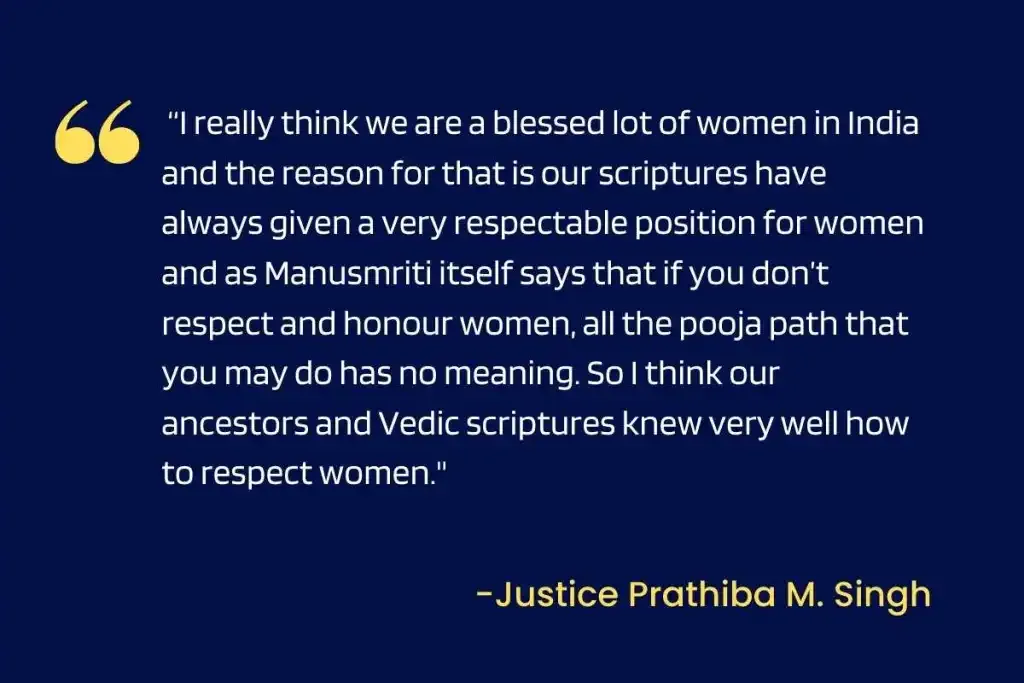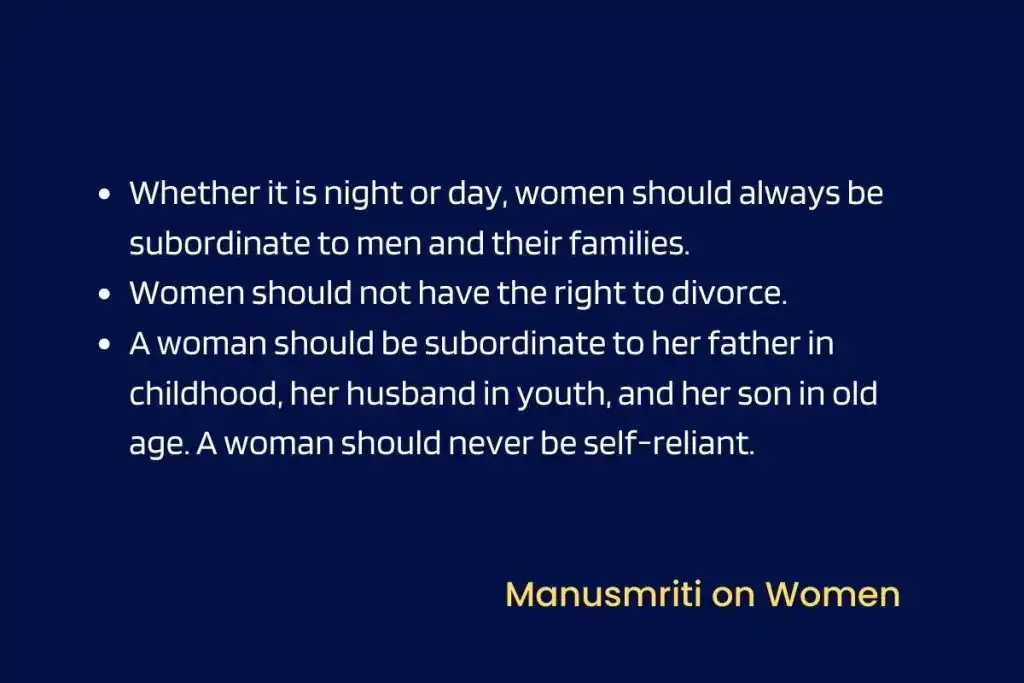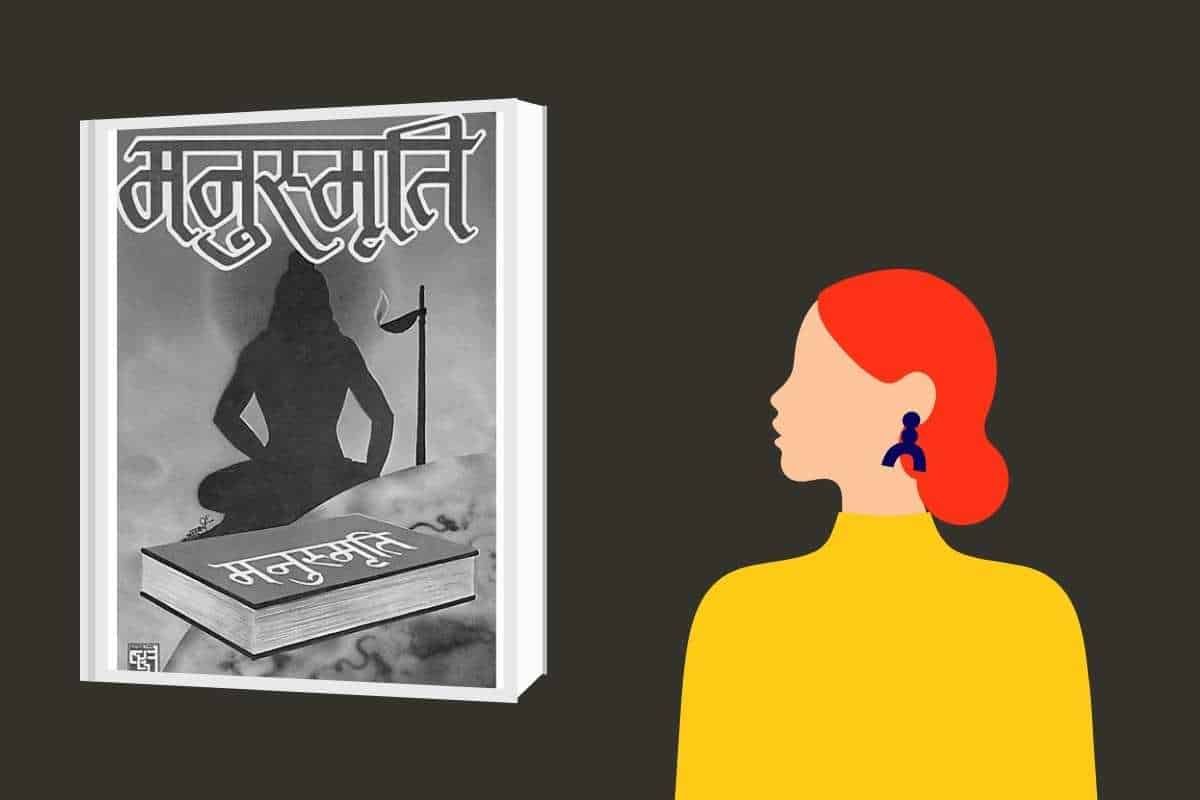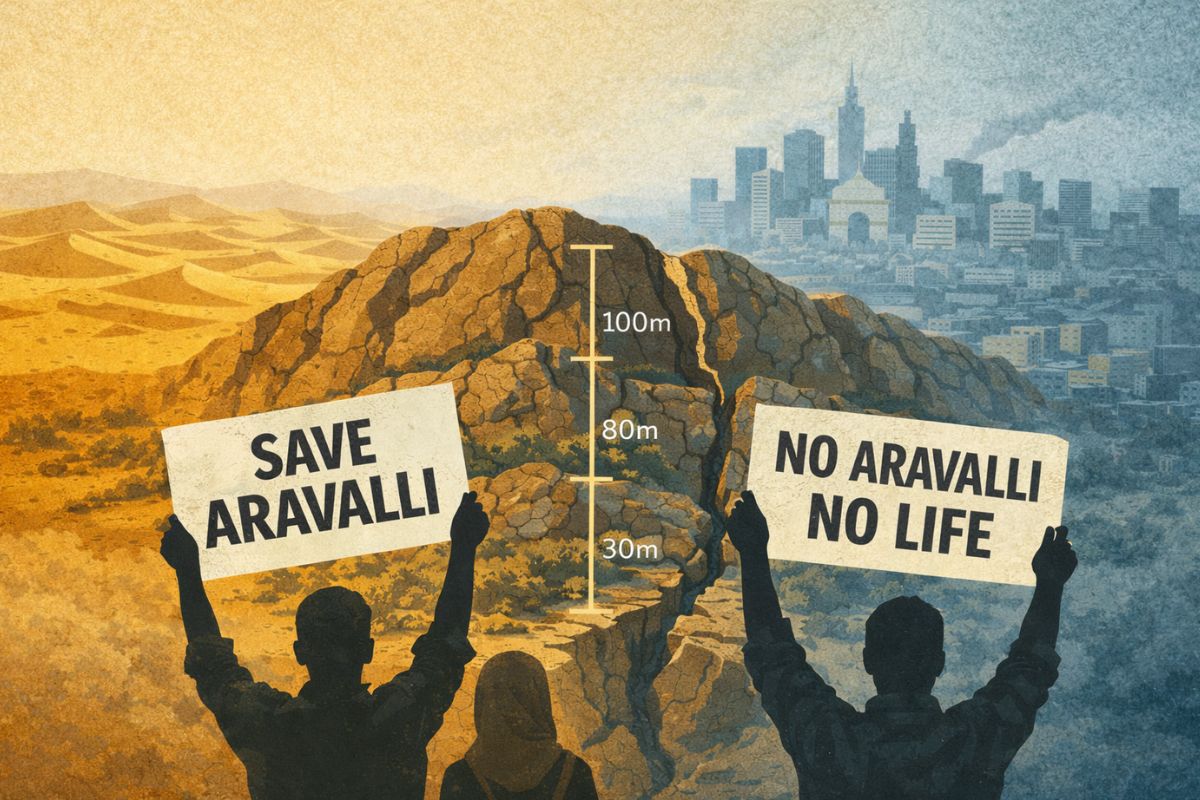Delhi High Court judge Justice Pratibha M Singh recently said that Indian women are blessed because scriptures like Manusmriti give them respectable status in society.
Her statement has created a lot of controversies because Manusmriti is a controversial book that broke the Hindu society. This made women incapable of becoming self-reliant forever. It divided human beings into castes and gave Brahmins the highest status in society. It never considered women more than a shoe. This Hindu script written by Manu has been the center of criticism because it gives high status to men and upper caste people, women and other castes lower.

Communist Party of India (Marxist–Leninist) Liberation leader and activist Kavita Krishnan said it is “downright scary that the rights of women in India lie at the mercy of judges like Pratibha Singh”.
Experts say that after reading what has been written about women and Shudras in Manusmriti, burning it is the best thing to do. Manu’s thoughts about women were like this.
Role of Women according to Manusmriti
- It is the tendency of women to seduce, gentlemen should not spend time alone with women.
- A woman, whether she is young or old, should not do anything by herself, even in her own home.
- Gentlemen should not marry women who do not have brothers or whose parents do not have prestige in society.
- A woman who has red hair, Who is differently abled, very ill, who has red eyes, who has a lot or no hair at all, a man should not marry such a woman.
- Whether it is night or day, women should always be subordinate to men and their families.
- Women should not have the right to divorce.
- A woman should be subordinate to her father in childhood, her husband in youth, and her son in old age. A woman should never be self-reliant.

- It is the responsibility of all castes to protect their wife, even the weakest husband should protect his wife.
- It is not a punishable offense if a woman chooses to have physical relations with a man of upper caste. But if a woman chooses to have sex with a man from a lower caste, she should be punished and kept separate.
- If a man from a lower caste has sex with a woman of a higher caste, then the person in question should be given the death penalty.
- According to this scripture, only and only Brahmin men have the right to be human and everyone else has come to this world for their slavery and their care. It is clearly written in this book that if women can be subordinate to anyone, then they will be only Brahmin men.
Also Read
- India aiming to climate goals, As PM Modi’s commitment at COP26
- Gurez valley: The hidden jewel of Kashmir
- How climate change is affecting birds?
- India bringing African cheetahs to Kuno Sanctuary in MP but Why?
You can connect with Ground Report on Facebook, Twitter, Koo App, Instagram, and Whatsapp and Subscribe to our YouTube channel. For suggestions and writeups mail us at GReport2018@gmail.com










